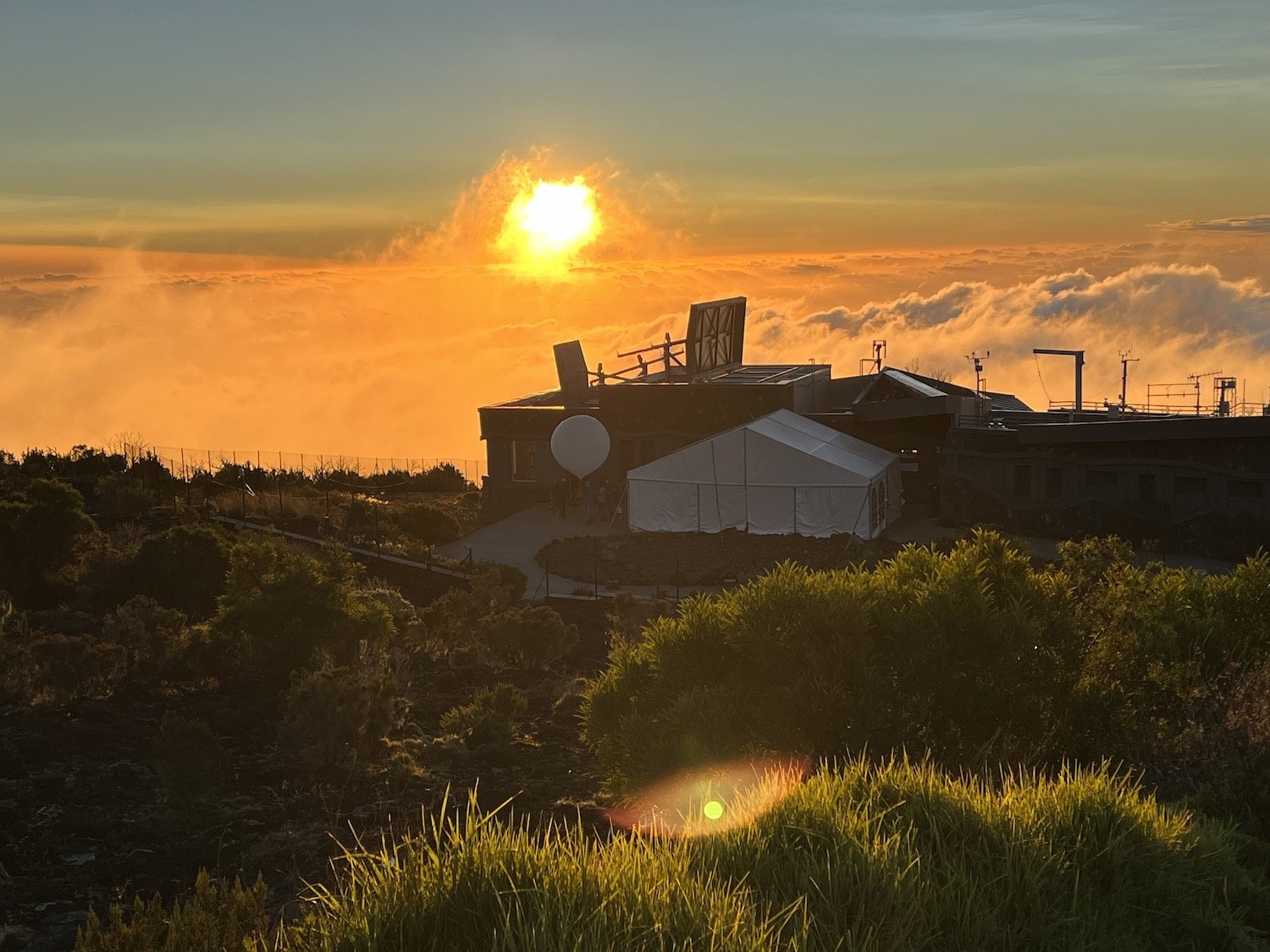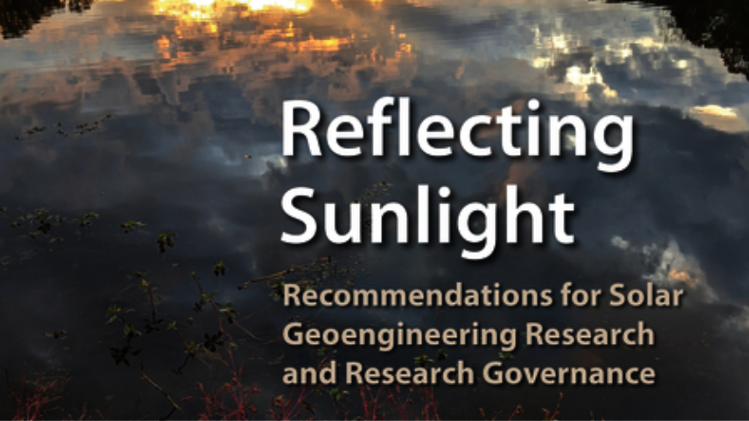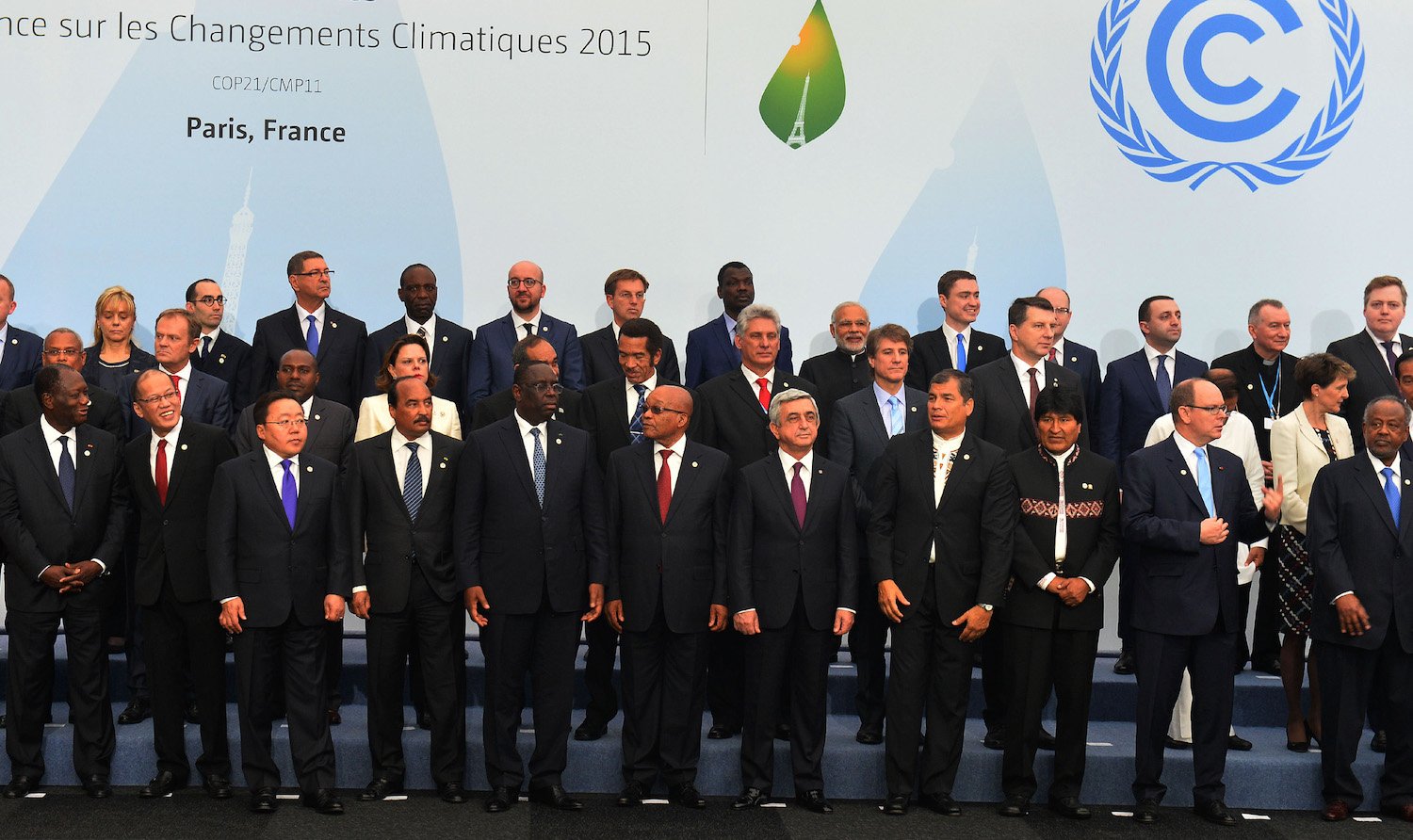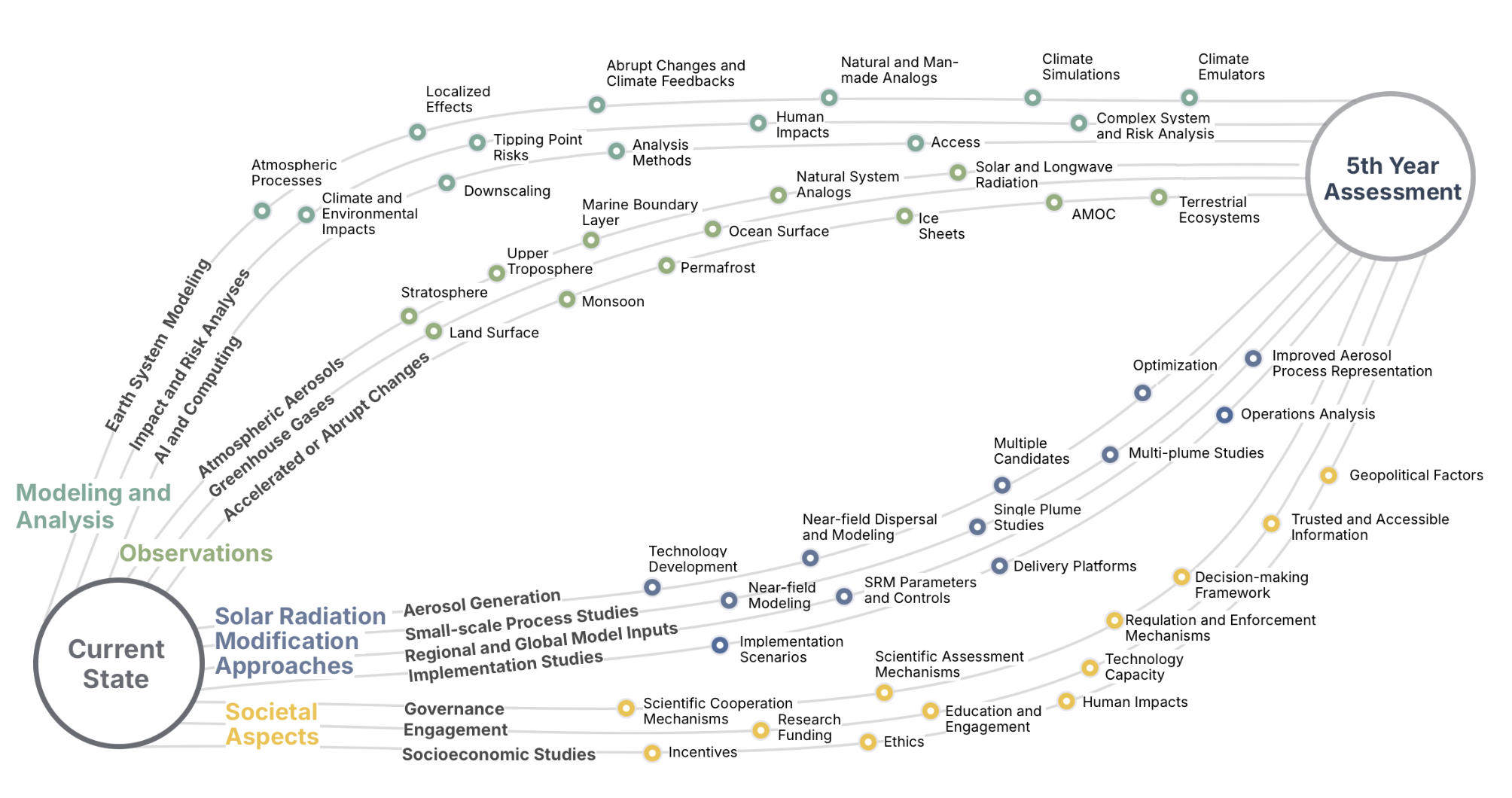
Insights
Featured

Council on Foreign Relations: The Growing Risk of Climate "Tipping Points" (Scientific Evidence and Policy Responses)
As you may have seen in the news, recent studies indicate a heightened risk that major natural systems are approaching thresholds for rapid, potentially irreversible changes with catastrophic impacts on people and climate.

Rapid Response Campaign for Observations of Tonga Volcano Emissions
The recent eruption of the Hunga volcano in Tonga is a rare volcanic event in which material was projected high into the atmosphere in a way that serves as a natural experiment for understanding the primary processes and effects of material released into the upper atmosphere (the stratosphere).

Statement on the Biden Administration’s Plan to Develop a Next-Gen Satellite Climate Observing System
Statement of SilverLining’s Executive Director Kelly Wanser on the Biden Administration’s plan to develop a next-generation satellite observing system at NASA to help understand and track how climate change is impacting communities.

Perspectives on NAS Report Recommending a Federal Research Program on Sunlight Reflection
The U.S. National Academy of Sciences recently published a new report, "Developing a Research Agenda and Research Governance Approaches for Climate Intervention Strategies that Reflect Sunlight to Cool Earth," in which it recommended a robust, interdisciplinary, multi-agency research program for the United States alongside cooperative international efforts.

Summary: NASEM Report on Developing a Research Agenda and Examining Governance Approaches for Climate Intervention
On March 25, 2021, the National Academies of Sciences, Engineering, and Medicine (NASEM) published Developing a Research Agenda and Research Governance Approaches for Climate Intervention Strategies that Reflect Sunlight to Cool Earth, a long-awaited report that SilverLining played a role in bringing to bear. You can read SilverLining's statement on the report here.

Statement on NASEM Report on Developing a Research Agenda and Examining Governance Approaches for Climate Intervention
Today, SilverLining issued the following statement on the release of the National Academies of Sciences, Engineering, and Medicine (NASEM) report on developing a research agenda and researching governance approaches for climate intervention strategies that reflect sunlight to cool Earth.

Takeaways From The National Academy of Sciences Recommendations for USGCRP
This week, the National Academies of Sciences, Engineering, and Math (NASEM) released an important report on the path forward for climate research in the United States, "Global Change Research Needs and Opportunities for 2022-2031."

Biden Administration Nominees Need to Tell Congress How They Will Handle Near-Term Climate Risk
The Biden administration has emphasized its intention to address climate change across federal agencies via transparent, science-based decision-making.

What Bill Gates Has to Say About Climate Intervention in His New Book: "How To Avoid A Climate Disaster"
As I was reading through Bill Gates' new book, How to Avoid a Climate Disaster, over the past week, I was encouraged by his interest in the potential of climate intervention as means to address near-term climate risks, avoid a major climate catastrophe, and protect vulnerable populations worldwide.

Why 'Climate Intervention' Is the Right Term for the Most Dramatic Response to Climate Change
Based on anecdotal evidence from our work with people from all walks of life, we have experienced that language — specific terms — has a great effect on the nature of the dialogue on climate.

Statement on the United States Rejoining the Paris Climate Agreement
Kelly Wanser, Executive Director of SilverLining, released the following statement on the United States rejoining the Paris Climate Agreement:

Comment on Proposed Governance Framework for Harvard University's Stratospheric Controlled Perturbation Experiment (SCoPEx)
SilverLining's Executive Director, Kelly Wanser, and Research Director, Alex Wong, submitted comments to the Stratospheric Controlled Perturbation Experiment (SCoPEx) Advisory Committee on the proposed Public Engagement Process.

U.S. Climate Policy Must Address Near-Term Climate Risk: SilverLining's Recommendations To The Biden-Harris Administration
New leadership in the United States presents a powerful opportunity for efforts to combat climate change.

Climate Intervention Research May be Critical to a More Just and Safe Society
Climate-related headlines have become so common that I fear we may start to normalize the terrible news.

A Fifth Rationale For Climate Intervention Governance
The study of governance of large scale interventions in the climate system (or, “geoengineering”) will become increasingly important as we gain a better understanding of its promises and risks.
SilverLining Unveils Interactive Roadmap for Research and to Advance Understanding of Near-Term Climate Risk and Intervention. The 5-year digital roadmap includes ambitious improvements to climate observations and models and study of a portfolio of rapid interventions.
Rapid and effective reporting, regulation and enforcement for weather modification and climate intervention activities would be best achieved in a structure in which the National Oceanic and Atmospheric Administration (NOAA) provides research and analysis of weather and climate impacts in support of a program of registration, permitting and enforcement by the Environmental Protection Agency (EPA). To achieve this, NOAA should expand relevant research and, with EPA, collaborate in the design of relevant processes. Within this, to support critical research, small-scale emissive research studies should be supported and exempted from permitting requirements for impact-scale activities.
Marine cloud brightening (MCB) is a promising approach to reducing near-term climate impacts and risks by dispersing sea salt particles (aerosols) into low marine clouds to make them reflect slightly more sunlight back into space to cool the climate.



